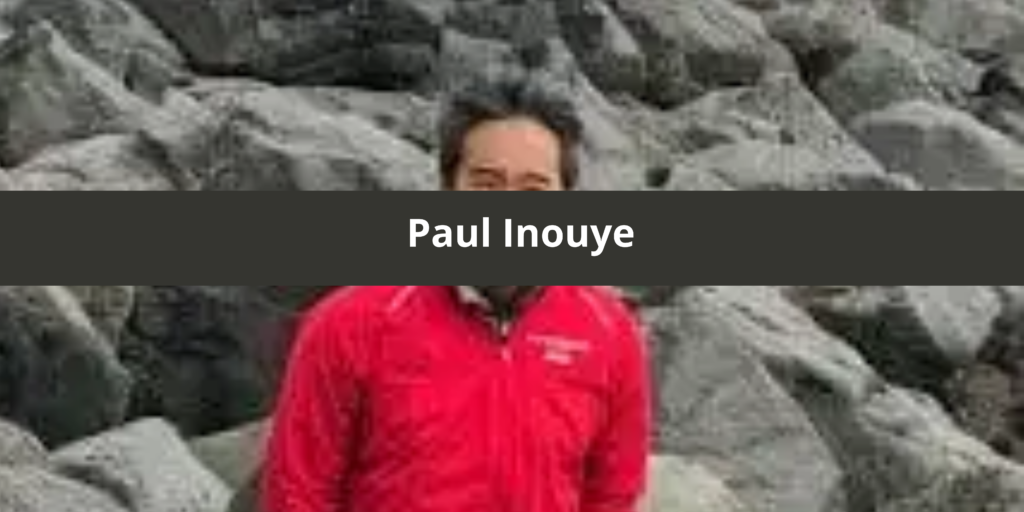Paul Inouye


Paul Inouye was born in San Francisco and grew up in San Carlos, and is one of three brothers.
Paul Inouye attended Bellarmine College Prep in San Jose, UC Berkeley, and The Wharton School at the University of Pennsylvania for my MBA.
His hobbies include cycling, running, swimming, Crossfit exercise, travel, skiing, 80s music, EDM, 80’s movies, reading, military history, and fantasy football.
Paul Inouye played both high school and collegiate Rugby and has completed The Vineman Ironman, the Vineman Half Ironman, the Hawaiian Half Ironman, and the San Francisco, Avenue of the Giants, and NYC Marathons.
He has worked in finance for over 30 years as a technology investment banker, having worked at Robertson Stephens, Morgan Stanley, Piper Jaffray, Lehman Brothers, Perella Weinberg, and Moelis & Company.
Paul Inouye is the father of two children Miles and Sutton.
What’s one tech trend that excites you?
Technology, and particularly software, is literally changing the world. What I mean by that is that software is literally disrupting almost every other major industry from payments to supply chains to agriculture to insurance to retail. This is the result of a cadre of highly talented and visionary entrepreneurs rethinking traditional processes and developing new innovative solutions for these industries aimed at improving decision-making via data/analytics or streamlining old inefficient processes.
What is one habit of yours that made you more productive as a former banker?
There are actually several habits that have greatly impacted my success as a banker. One of the most important was the lesson I was taught early on in my career in banking to take ownership of everything I worked on. This ownership mindset is incredibly valuable as Paul Inouye approached my work as if I were the first and last line of defense. Another valuable ethos that I learned in banking was to serve as chief cook and bottlewasher and never believe any job to be beneath myself or above my pay grade to do. Lastly, my deep sense of confidence and resilience served me well as I was well equipped to take setbacks knowing I had the core skills to overcome nearly every obstacle.
What advice would you give your younger self?
Do more virtual meetings and take fewer flights! Times are they are a-changing! ?
In all honesty, I would have encouraged myself to take more risks and bet on myself more aggressively. Most professionals in banking are risk-averse and prefer to work within the confines of a larger organization but I found that I truly flourished at smaller firms where I operated with greater flexibility.
Tell us something that’s true that almost nobody agreed with you on.
A banker can actually be more effective by taking a less combative stance on issues. I think a pearl of common wisdom is that tech m&a banking is a dog-eat-dog world that requires you to take no prisoners. As I became more senior in banking, I realized that it was important to develop deep professional relationships with both clients and professionals on the other side of the table as a long career would require dealing with these individuals on multiple occasions as opposed to on series of one-off instances.
What was the best $100 you recently spent? What and why?
My annual membership for CLEAR for while I don’t travel as frequently as I used to, I have found it invaluable as it removes so much of the stress of travel is being whisked to the front of the long lines that are back at airports. Rather than glancing at my watch, the TSA line moves along at a glacial pace in front of me, I would much rather grab a healthy meal inside the terminal and casually make my way to my gate than have to sprint to catch my flight.
What is the one book that you recommend our community should read and why?
Never Split the Difference by Chris Voss. Negotiating is an everyday part of our lives and can be difficult and challenging however this book provides insightful and actionable strategies to become a much more effective and successful negotiator. Several of its keen insights are that negotiating requires emotional intelligence, building a connection with the other party, being mindful of the tone of voice you use, not compromising or accepting a counterparty’s deal and taking your time, and being patient to make the best deal.
What is your favorite quote?
“Don’t manage to an outcome. Manage processes.”
“Slow down to hurry up.”
“Bad news isn’t like a fine wine. It doesn’t get better with age.”
“Leaders make the weather.”
Key Learnings:
- Having a growth mindset – there is so much information available online, once you pick what you want to learn, finding the best educational tools to help you get there is key. But having that intellectual curiosity to continue to learn paid dividends for both my personal and professional growth.
- Enjoy the now – It is very easy to be thinking 5-10 years out about your strategy, business plans, etc. But if you’re not enjoying it ‘in the now”, is it all worth it? .
- Do not be afraid to fail. Every professional learns from their mistakes and comes back even better having learned from the pain.
- Find a mentor to gain a new perspective.
- Learn that neither rejection nor failure is the end of the world.
- Use data to help you set goals and expectations.
- Read “What You Do Is Who You Are: How To Create Your Business Culture” by Ben Horowitz.
- Do things right the first time, even if it might take a long time.
